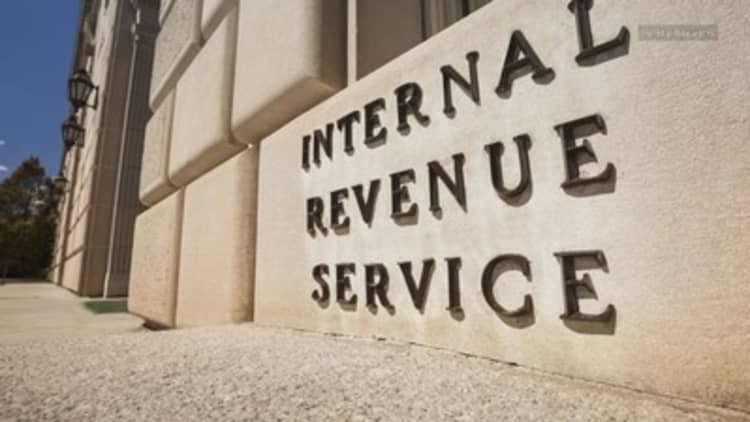A costly tax-planning lesson is in store in light of the Paul Manafort case: Tell the IRS and Treasury about your foreign accounts, or else.
Manafort, a former campaign chairman for President Donald Trump, was found guilty of eight criminal counts on Tuesday, including one count of failure to file foreign bank account reports.
He was also found guilty of five counts of tax fraud and two counts of bank fraud.
U.S. District Court Judge T.S. Ellis declared a mistrial on 10 remaining counts in the bank fraud and tax crimes trial after the jurors said they could not reach a consensus.

Richard W. Westling, one of Manafort's attorneys and a lawyer with Epstein Becker Green, had no comment.
The takeaway from all this is that you don't have to be a high-profile political operative to run afoul of the reporting requirements around foreign bank accounts.
Americans residing abroad, for instance, have found themselves shelling out for taxes owed in the U.S. and for related accounting expenses.
The U.S. taxes individuals based on the citizenship of its taxpayers, not their residency.
Indeed, since 2009, more than 56,000 taxpayers have notified the IRS and Treasury of their overseas accounts and have paid more than $11.1 billion in back taxes, penalties and interest.
Here's what you need to know if you reside overseas or hold foreign accounts.
Filing the FBAR
Americans with foreign accounts have until April 15 to file a Report of Foreign Bank and Financial Accounts, or FBAR, with the Treasury's Financial Crimes Enforcement Network.
Those who fail to file on that deadline get an automatic extension to Oct. 15.
You must submit an FBAR if you had an interest in or signature authority over at least one account outside the U.S., and the aggregate value of all the foreign accounts exceeded $10,000 at any time in the year.
It'll cost you if you skip this form.
You could be on the hook for a penalty as high as $10,000 for non-willful violations occurring prior to Nov. 2, 2015. For violations taking place after that date, the penalty is $12,459.
Those who knowingly flout the requirement may be charged a penalty of $100,000 or 50 percent of the balance in the account for violations occurring prior to Nov. 2, 2015. The penalty for violations after that date is $124,588 or half of the balance of the account.
These individuals may also face criminal penalties.
Filing with the IRS

If you're required to submit an FBAR, you may also need to turn in a statement of specified foreign financial assets — Form 8938 — to the IRS when you file your income tax return.
Be aware that this form is subject to reporting thresholds, and that those thresholds will vary based on your filing status and whether you live in the U.S.
Single taxpayers who live overseas are required to file Form 8938 if the total value of their foreign financial assets exceeds $200,000 on the last day of the tax year ($400,000 for married filing jointly) or if it exceeds $300,000 any time during the year ($600,000 for spouses who file jointly).
Single filers who live in the U.S. must turn in Form 8938 if the total value of their foreign financial assets exceeds $50,000 on the last day of the tax year ($100,000 for joint filers) or if the value exceeds $75,000 any time during the year ($150,000 for couples filing jointly).
Taxpayers who fail to disclose these accounts face a penalty of up to $10,000.
If they continue to withhold information even after the IRS notifies them of a failure to disclose, these account holders may face a maximum penalty of $60,000, along with criminal penalties.
Avoid these mistakes
The most common error filers make tends to be when they fail to report one of their accounts on the FBAR, according to David McKeegan, an expatriate and co-founder of Greenback Expat Tax Services of New York and Bali, Indonesia.
In that case, you will need to file a delinquent FBAR and include an explanation to the Financial Crimes Enforcement Network as to why you're filing late.
Further, American filers who lived overseas, invested some of their money, and then returned to the U.S. are also likely to get tripped up on reporting requirements around tax time.
"One of the tricky things people get in trouble with is if they invest in foreign mutual funds," McKeegan said. "That can be a big red flag when we prepare tax returns for people."
That's because these funds are subject to different reporting requirements compared with their U.S. mutual fund counterparts.
Filers also get confused about which forms they're required to submit and where to send them: Don't forget that your FBAR must go to the Treasury's FinCEN bureau, and your Form 8938 goes to the IRS.
"It isn't illegal to have these foreign accounts, but you must file," McKeegan said.
More from Personal Finance
IRS ending taxpayer amnesty for hidden foreign accounts
More Americans are considering cutting their ties with the US — here's why
What expats don't know about this tax requirement will cost them






